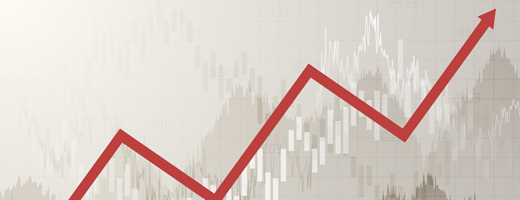Iceland’s Lífeyrissjóður Verzlunarmanna (LV), the pension fund for those working in retail, has published its first report on the negative impact of its investments on sustainability, in accordance with Sustainable Finance Disclosure Regulation (SFDR).
The publication of this information is required by European Union (EU) Regulation 2022/1288, which builds on Regulation 2019/1288 about sustainability disclosures in financial services.
The report followed specific EU regulations that outline how this information must be displayed, including an explanation of how the fund prevents "significant harm."
It also covered how the fund promotes environmental and social goals as well as sustainable investment objectives in its investment materials, websites, and reports.
Analysing and disclosing information on the main negative impacts of the fund’s investments is part of LV’s due diligence and investment processes.
These negative impacts relate to climate and other environmental indicators, social and labour issues, human rights, and concerns about corruption, bribery, or governance.
The report covered all 18 mandatory SFDR indicators on negative impacts, and two additional indicators: Extra climate-related indicators and indicators related to social and labour issues, human rights and issues related to the fight against corruption and bribery.
The fund said it believes that creating long-term value means looking at financially important sustainability factors alongside other traditional key indicators in financial analysis.
LV said it considers it “important” to disclose the negative impact of its investments in accordance with the legislation.
The fund used various standards to assess the focus areas and weighting of sustainability factors for different sectors.
To do this, the fund developed a framework that supports analysis and active ownership.
To better analyse, prioritise, and address the main negative impacts of its investments on sustainability, LV published several policies and documents.
In its sustainability work, LV used standards such as the Sustainability Accounting Standards Board, the Task Force on Climate-related Financial Disclosures, and the Partnership for Carbon Accounting Financials.
The fund also relies on the United Nations Global Compact when screening companies.
LV collected data on negative impacts on sustainability factors either directly from issuers or their websites and through data providers. It then follows up on data collection with interviews if necessary to improve data quality.
LV said that by requesting the data and calculating and analysing these metrics it is in a “better position” to account for the negative impact of the fund’s investments on sustainability factors.
The information covers approximately 30 per cent of the fund’s total portfolios or approximately 38 per cent of the asset classes covered by the SFDR’s principal adverse impacts. Domestic assets are the only ones considered in this first publication.
For domestic assets at the end of 2024, the analysis covers over 87 per cent of their total value.
LV has said it will publish information on the negative impact of all assets in the fund's portfolios covered by the regulation, in line with the availability and quality of data “in due course”.
Latest News
-
Swedish govt tasks SPA with introduction of surplus mechanism
-
Rising interest rates and market gains lift Dutch pension funding ratios in Q3
-
Keva’s investments return €2.4bn in first three quarters of 2025
-
Spanish pension plan assets rise €2.1bn in first three quarters of 2025
-
News in brief: 24 October
-
Provisum joins growing list of Dutch schemes delaying transition
Podcast: Stepping up to the challenge

In the latest European Pensions podcast, Natalie Tuck talks to PensionsEurope chair, Jerry Moriarty, about his new role and the European pension policy agenda
Podcast: The benefits of private equity in pension fund portfolios

The outbreak of the Covid-19 pandemic, in which stock markets have seen increased volatility, combined with global low interest rates has led to alternative asset classes rising in popularity. Private equity is one of the top runners in this category, and for good reason.
In this podcast, Munich Private Equity Partners Managing Director, Christopher Bär, chats to European Pensions Editor, Natalie Tuck, about the benefits private equity investments can bring to pension fund portfolios and the best approach to take.
In this podcast, Munich Private Equity Partners Managing Director, Christopher Bär, chats to European Pensions Editor, Natalie Tuck, about the benefits private equity investments can bring to pension fund portfolios and the best approach to take.
Mitigating risk
BNP Paribas Asset Management’s head of pension solutions, Julien Halfon, discusses equity hedging with Laura Blows
© 2019 Perspective Publishing Privacy & Cookies







Recent Stories